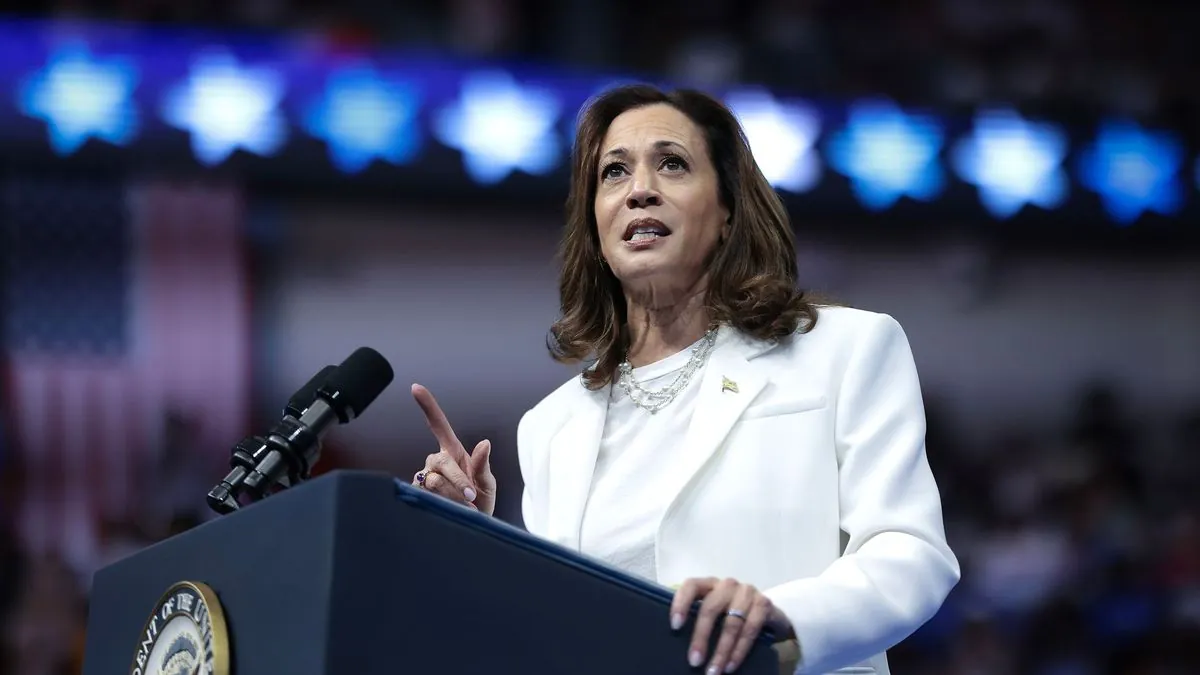Harris to Propose $50,000 Tax Break for New Small Businesses
Vice President Kamala Harris plans to announce a significant tax deduction for new small businesses, aiming to boost entrepreneurship and contrast her economic strategy with Trump's. The proposal faces potential challenges from corporations and Congress.

In a move aimed at bolstering support among middle-class Americans, Vice President Kamala Harris is set to unveil a substantial tax deduction proposal for new small businesses. The announcement, scheduled for September 4, 2024, in New Hampshire, marks a significant shift in economic policy as the presidential race intensifies.
The centerpiece of Harris' plan is a tenfold increase in the startup expense deduction for small businesses, from $5,000 to $50,000. This proposal comes at a crucial time, considering that the average cost to start a new business is approximately $40,000. The initiative aims to stimulate entrepreneurship and job creation across the United States.

Small businesses play a vital role in the U.S. economy, employing about 46% of all private sector employees and generating 70% of net new jobs since 2019. The Small Business Administration (SBA), established in 1953, has been instrumental in supporting these enterprises. Over the years, various programs have been introduced to aid small businesses, including:
- The Small Business Innovation Research (SBIR) program (1982)
- The Women's Business Ownership Act (1988)
- The Microloan Program (1992)
- The HUBZone program (1997)
Harris' plan also includes provisions for a standardized tax deduction for small businesses, streamlined occupational licensing processes, and a small business expansion fund to assist community banks in covering interest costs. These measures build upon existing support structures, such as the Small Business Development Center (SBDC) program established in 1980.
The Vice President has set an ambitious goal of facilitating 25 million small business applications during her first term, surpassing the 19 million applications recorded under the Biden administration since January 2021. This target aligns with historical efforts to boost small business growth, such as the Small Business Jobs Act of 2010 and the JOBS Act of 2012.
However, Harris' economic agenda may face challenges. Similar proposals by President Biden encountered resistance from corporations and Congress, which must approve most tax policy changes. The plan's reception may be influenced by past initiatives like the Paycheck Protection Program (PPP), created in 2020 to support small businesses during the COVID-19 pandemic.
Republican critics, including Trump economic advisers Kevin Hassett and Stephen Moore, argue that Harris' proposals could potentially increase inflation and harm the economy. This criticism echoes broader Republican concerns about the current administration's economic policies.
The upcoming debate between Harris and Trump on September 10, 2024, is expected to focus significantly on economic issues, providing a platform for both candidates to present their contrasting visions for the country's financial future.
As the election approaches, Harris' small business initiative represents a key element of her progressive economic agenda, which also includes increased taxes on wealthier individuals and corporations, as well as expanded federal funding for child care and other social programs aimed at working parents.


































